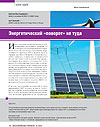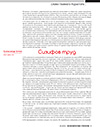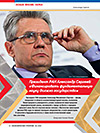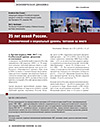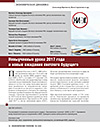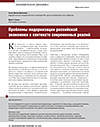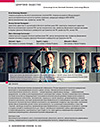
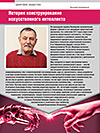
At the recent World Economic Forum in Davos, Russian representatives expressed the opinion that “development of artificial intelligence has become the event of 2017 in the world”, that Russia needs to create and to develop an ecosystem for promoting priority technologies (blockchain, quantum technologies, artificial intelligence). And at the Gaidar forum in the beginning of 2018 the RF Prime Minister Dmitry Medvedev issued a word of caution that development of artificial intelligence may lead to reassessment of fundamental values, including in connection with reduction of personal space in human activities. The world is on the verge of a new long-term economic cycle — the sixth Kondratieff wave. As its driving forces, the specialists consider development of information and communication technologies, bio- and nanotechnologies and their convergence, the course for “environmental friendliness” of new developments and methods of management in general. According to Kondratieff’s theory of large cycles, which has become classic, social upheavals arise most easily in the period of the onslaught of new economic forces. So far, nobody managed to unequivocally answer the question: what awaits us if we learn to produce large numbers of robots with high intellectual abilities — a catastrophe or a blessing. Therefore, new research is needed to prove their benefit or harm to all of us. In the interview with Alexander Ageev, the editor-in-chief of the “ES” magazine, Professor Valery V. Ovchinnikov, Director of the Global Expertise Center of the Global Industrial Center in the countries of Latin America, Europe and China, Doctor of Economic and Technical Sciences tells about the history of creating microelectronics in our country and its innovation center in Zelenograd, the main problems in development of artificial intelligence, about international projects in this field, the brain drain problem and the inevitable social “accompaniment” of every technological revolution.
Продолжить чтение



